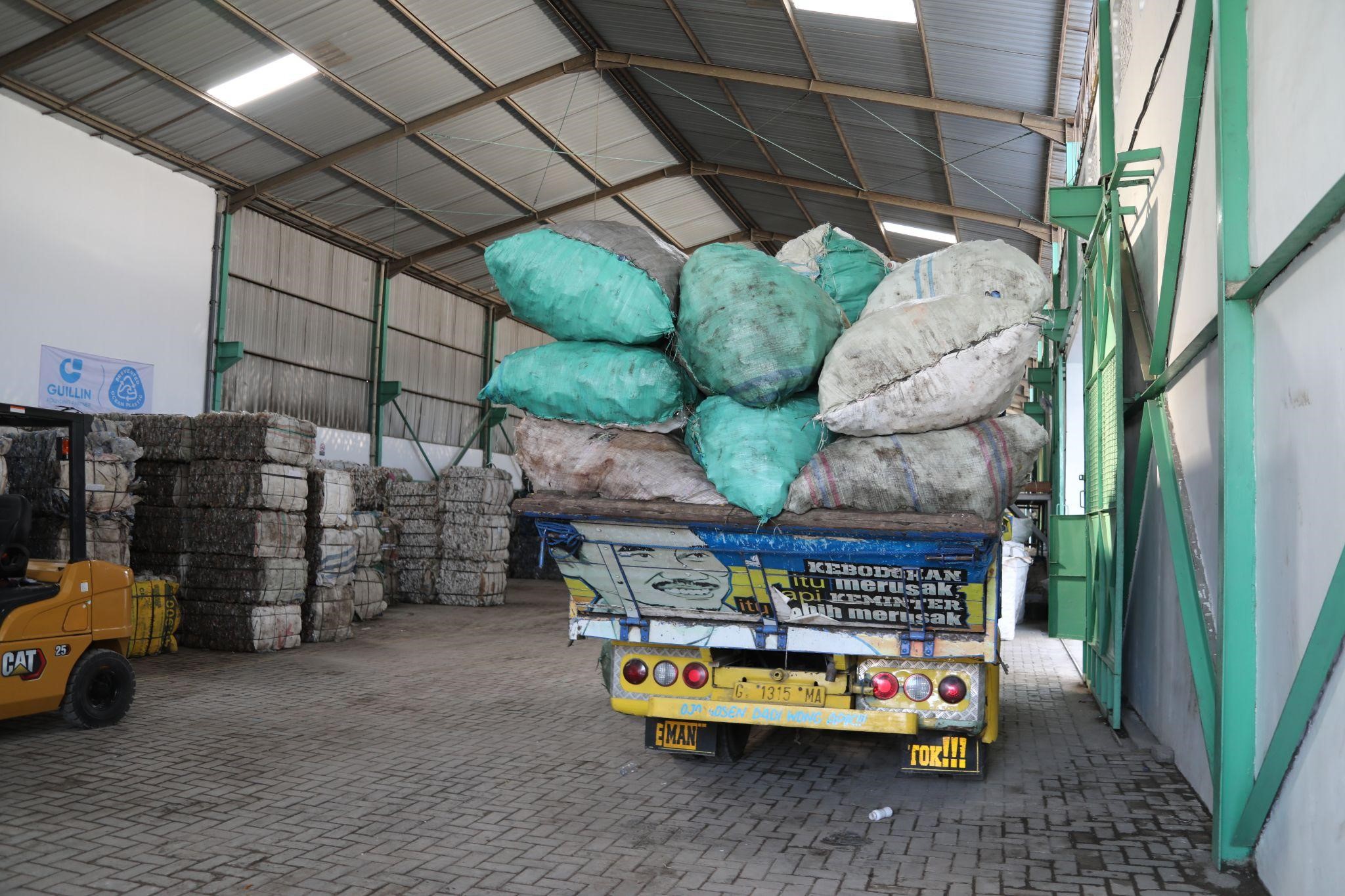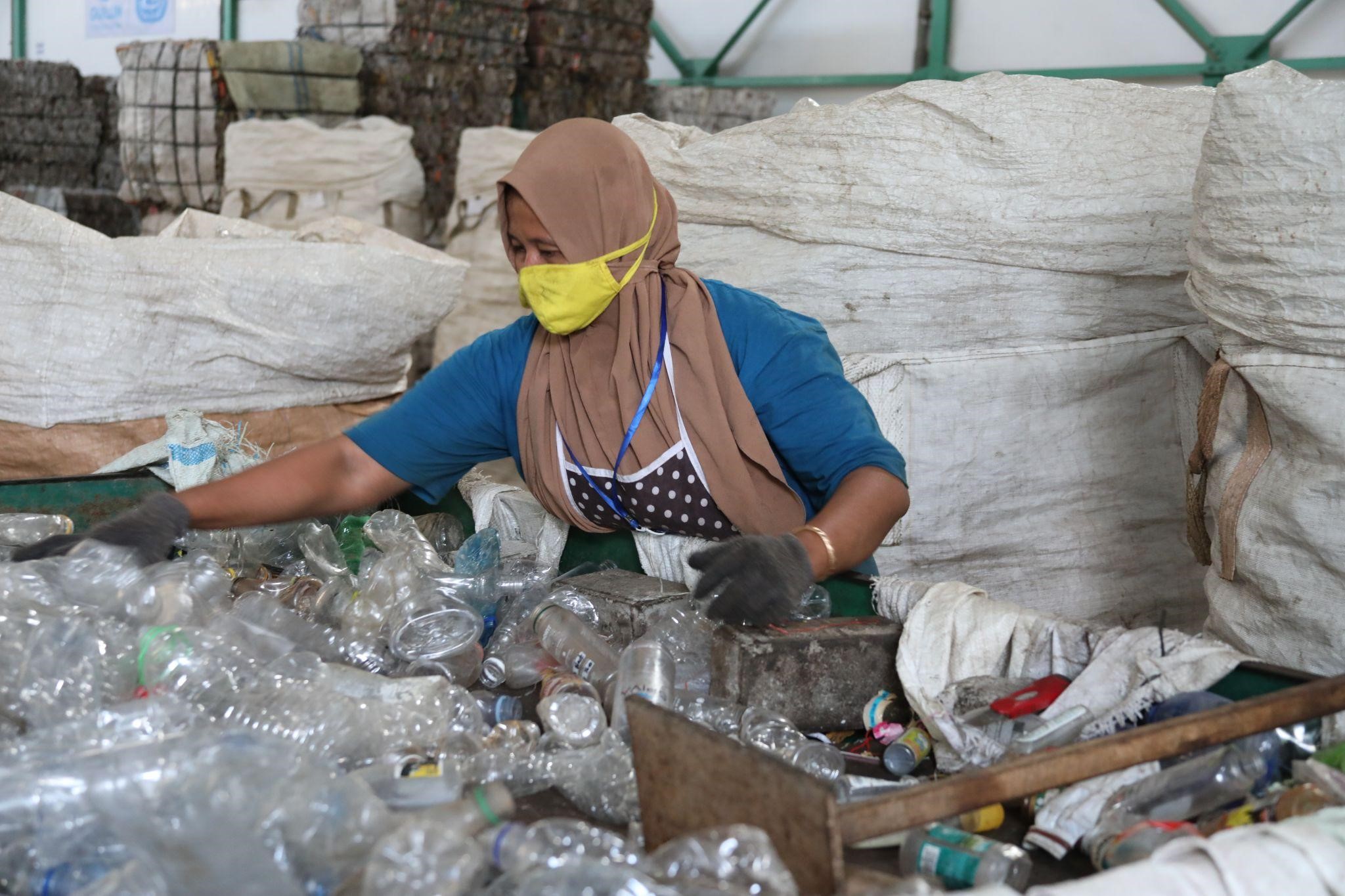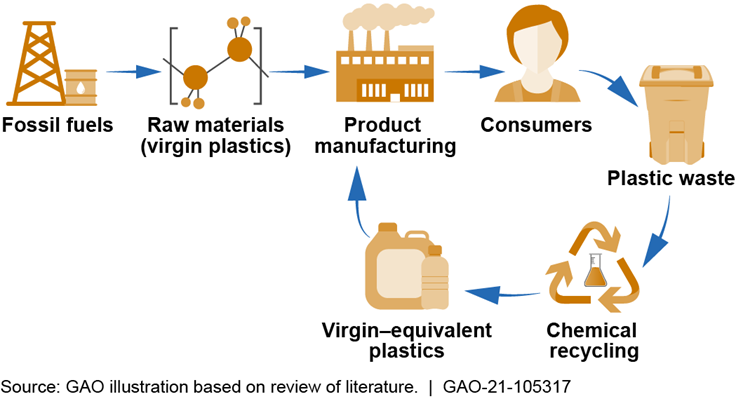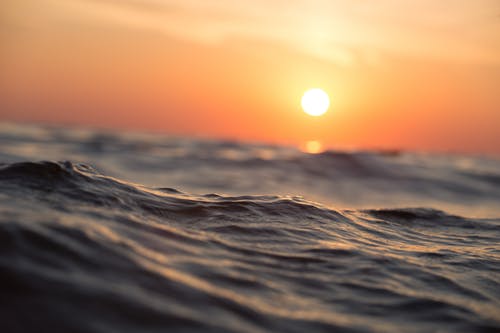Aggregating Post-Consumer Plastics to Advance Circular Economies
Author: United States Agency for International Development | Clean Cities, Blue Ocean
Blog 2: Uploaded December 7th, 2023
Of the seven billion metric tons of plastic waste generated globally to date, less than 10 percent has been recycled.[1] To prevent plastic waste from flowing into our oceans and damaging the environment, much higher volumes need to be collected and recycled at the source―on land.
One of the keys to a circular economy is aggregating post-consumer plastics—the ability of local governments to collect or “aggregate” recyclables into meaningful volumes.
Clean Cities, Blue Ocean—the U.S. Agency for International Development’s (USAID) $53 million flagship program to address ocean plastic pollution under the Save our Seas Initiative—is
piloting new approaches to strengthen local solid waste management systems in over 25 rapidly urbanizing cities across ten countries in Asia, Pacific Islands, Latin America, and the Caribbean.
As waste management is typically the responsibility of local governments, USAID employs a local systems approach to addressing land-based leakage. In Indonesia, Clean Cities, Blue Ocean and its partners are investing in local aggregation facilities that strengthen cities’ recycling supply chains and support livelihoods, but also enable cities to route high quality, clean recycled plastic to global markets.
Investing in Recycling Infrastructure
In October 2022, Clean Cities, Blue Ocean partnered with Circulate Capital, a leading circular economy investment management firm; Prevented Ocean Plastic Southeast Asia, a plastic recycling company providing traceable plastic to global buyers; and their local subsidiary, PT. Prevented Ocean Plastic Indonesia to expand recycling infrastructure in key cities through new aggregation and collection centers that optimize the volume and value of plastic waste in Indonesia.
[1] UN Environment Programme. Our Planet is Choking on Plastic

The aggregation facility in Semarang, Indonesia (Photo Credit: Clean Cities, Blue Ocean/Jon Angin).
The partnership initially focused on the city of Semarang—one of the largest cities on the island of Java—and supported the expansion of an existing aggregation facility to become a regional hub. With USAID support, the aggregation center is now fully equipped to shred (or densify) plastic materials to be processed and recycled in volumes large enough to establish a profitable recycling market, improve logistic efficiencies, and reach international buyers. The new aggregation center has a much higher capacity than a standard collection center and is capable of processing 500 metric tons of recycled plastic per month, the equivalent of over 54 million plastic bottles.
A focus of the work is building inclusivity, better livelihoods, and safer working conditions throughout the waste value chain—to ensure the informal waste collectors, especially women, participate and are recognized in the local waste system. By connecting waste pickers with access to the aggregation and collection facilities, establishing price standards, and offering safe working conditions where they can sort the waste, the efforts improve working conditions, but also promotes better practices with the informal workers who contribute materials.

A woman sorting plastic waste at the facility in Semarang, Indonesia. (Photo Credit: Clean Cities, Blue Ocean/Jon Angin)
Key Takeaways
The following recommendations from USAID’s’ work are relevant to APEC economies:
● Ensure adequate recycling markets. Aggregation centers require a robust plastics market that can consistently support them.
● Foster local leadership. The buy-in and leadership of local governments is essential to building effective recycling systems.
● Prioritize informal waste collectors. Informal waste collectors—who are often overlooked and undervalued—fill the important municipal service of collecting, sorting, and recycling waste.
● Build community awareness of the value of recycling. Increasing societal awareness of the importance of recycling leads to increased community participation.
Looking Ahead
USAID launched the Save Our Seas Initiative in June 2022 with the goal of ending the flow of plastic pollution into the ocean by 2040. Designed to support implementation of the United States Save Our Seas Act 2.0 of 2020, this initiative is supporting 14 country and regional programs in key geographies that represent 40 percent of total global mismanaged plastic waste.
We invite APEC economies to learn more about our work through our Virtual Event and Training Hub, which offers on-demand training and webinars on a range of topics related to waste management; or through our case study series that features examples of high-impact approaches and activities.
How Advanced Chemical Recycling Contributes to a Circular Economy
Author: U.S. Industry
Blog 1: Posted February 2023
Plastics play a significant role in supporting the global economy across multiple sectors.
- In food packaging, they help protect and preserve products during transportation, extend shelf life, and reduce food waste.
- In manufacturing and construction, they are utilized in automotive parts, electronics, appliances, pipes, insulation, and building materials to enhance energy efficiency and reduces costs.
- In healthcare, they are applied in medical devices, equipment, packaging for pharmaceuticals, and disposable products like syringes, gloves, and IV bags to provide sterile, safe, and accessible health care solutions.
- In renewable resources, they are incorporated in solar panels, wind turbine components, and energy storage systems, supporting the renewable energy transition.
While plastics play an important role in multiple aspects of our everyday lives, plastic pollution is an undeniable global problem. Addressing plastic pollution requires a comprehensive, mulitstakeholder approach that contributes to a circular economy.
Advanced chemical recycling serves as one concrete, actionable process that can be implemented now to combate plastic pollution.
The Basics
Traditional mechanical recycling uses physical processes like sorting, grinding, and washing to repurpose plastics. Advanced chemical recycling focuses on breaking down plastics into their chemical building blocks (polymers), or converting them into fuels and other chemical products, to repurpose plastics.

There are multiple types of advanced chemical recycling, including:
1. Pyrolysis: A thermal decomposition process that involves heating plastic waste in the absence of oxygen. This process breaks down the plastic into smaller molecules, including gases, oils, and char. The resulting products can be used as feedstock for the production of new plastics, fuels, or other chemicals, replacing the need of fossil fuels.
2. Gasification: The conversion of plastic waste into syngas, a mixture of hydrogen and carbon monoxide, through a high-temperature process. The syngas can then be used as a fuel or as a raw material for the production of various chemicals.
3. Solvolysis: a chemical recycling technique that uses solvents to break down the chemical bonds in plastic polymers. It typically involves the use of supercritical fluids or other solvents to dissolve and separate the polymers into their basic components.
Advanced chemical recycling allows a wider range of plastics to be processed, producing high-quality raw material that decreases the demand for virgin plastic production and feeds repurposed materials into the circular economy.
The Benefits
In the United States, less than 10% of plastics are recycled. According to a recent Closed Loop Partners report, integrating advanced chemical recycling in the United States and Canada could double the amount of plastic packaging recycled (compared to 2019 recycling rates) and could generate up to $970 million dollars (USD) annually. The same Closed Loop Partners report found that “the average carbon emissions from producing plastic through…three [chemical recycling] technology categories [studied] showed an improvement compared to corresponding virgin plastics systems, with environmental impacts varying within and across the technology categories.”
Ultimately, implementing and scaling up advanced chemical recycling has the potential to:
- mitigate the impacts of climate change when it displaces the use of virgin plastics;
- increase recycled material available to manufacturing industries to reuse plastics and contribute to a circular economy; and
- contribute to the domestic economy by creating a market for plastic waste and generating jobs.
Call to Action: We invite APEC economies to learn more about advanced chemical recycling during the 3rd Senior Officials Meeting (SOM3) in Seattle, Washington, United States this August, 2023.
Submission Information
The VWG co-chairs are pleased to request a call for blog submissions from both APEC industry and APEC economies that would like to share the work they do to combat marine debris. The deadline to submit for the next blog post is March 8, 2024.
Guidelines for the blog submissions are below.
Should you have any questions regarding the blog series, please reach out to the VWG for Marine Debris co-coordinator Ms. Olivia Burzynska-Hernandez at: [email protected].
Guidelines for Submissions
- Maximum Word Length: 750 words
- Maximum number of photos/images: 3
- Scope of Topics:
- Economy activity related to marine debris/waste management
- City/Local activity related to marine debris/waste management
- APEC initiative/project related to marine debris/waste management



